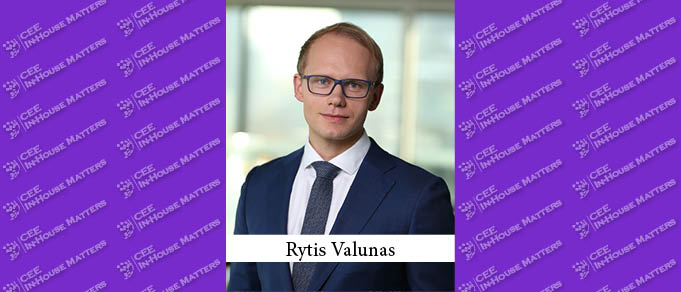“The energy sector has been highly affected in the past few months, as global demand went down tremendously, which has a significant impact on the whole value chain," says Rytis Valunas, GC for oil and LNG terminals operator Klaipedos Nafta. "Many companies, especially from the oil industry, caught themselves in a situation they never dealt with previously." And, he says, "with the pandemic evolving further, the business environment is not likely going to improve soon.”
Valunas notes that governments around the world have adopted economy rescue packages aimed at speeding the transition towards a green economy and points to the European Commission's approval of a EUR 500 billion financial stimulus program for green energy, the biggest in history, with more ambitious CO2 emissions reduction targets set for 2050. He explains that the mission of GCs now is to help navigate this new world and transform the business. “The best way to put it," he says, "is that our job now is to work together with fellow top executives and boards to ensure the continuity of our business and strengthen the focus on social and environmental responsibility”.
“From a short-run perspective," he says, "we are looking at how the changing environment affects the contractual obligations of our partners, suppliers, and clients, assessing possible risks (such as the invocation of force majeure clauses and delays caused by disruptions in the supply chain) and how they can be mitigated, and organizing our activities to ensure a sustainable relationship." According to him, "this goes way beyond the standard legal framework and it is all very intense because it is our responsibility to make sure companies stay afloat and resilient. Hence lawyers now have to act as advisers to the companies from the business continuity point of view.”
A longer-term perspective brings not only challenges, but opportunities. “In the evolving environment," Valunas says, "we see an important role of our company in bridging the old and new worlds of energy with more climate-friendly forms of energy, such as gas and LNG, renewable fuels and new forms of liquid energy like hydrogen, which is a development that attracts growing interest." Similarly, he says, "we strive to reduce carbon emissions from our activities by becoming more efficient and strengthen social and environmental governance."
The lawyers’ role is instrumental in understanding not only current regulations, Valunas argues, but also future policies and trends, and help companies to adapt in the best way. “As for GCs working in Lithuania in general, the challenges are different for every sector,” says Valunas (although of course some issues and tasks are shared by all). “In recent times, health and safety regulations and compliance with labor rules is the number one priority," he says, "and a lot of work is devoted there.” In the future, he says, "it’s obvious that lawyers will be more and more involved in risk assessment, business continuity plans, and strategic decision-making to drive companies’ transformations and social and environmental responsibility."
Valunas believes that the COVID-19 crisis has had a big impact on teaching lawyers to have a plan B ready in case things turn out unexpectedly. "It is important to always have in mind that things can change rapidly, and to be prepared to adapt as soon as possible.”
Originally reported by CEE In-House Matters.
















